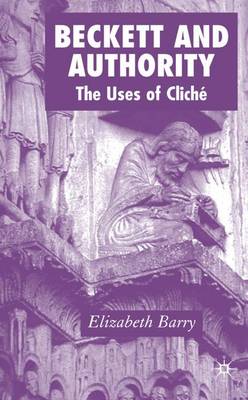Gilles Deleuze observed in Difference and Repetition that 'the worst literature produces sottisiers, while the best (Flaubert, Baudelaire, Bloy) is haunted by the problem of stupidity'. The current book situates Beckett in a philosophical and literary tradition that has argued for the creative value of stupidity or betise: a key concept in the thinking of philosophers such as Wittgenstein and Deleuze, and central to the practice of writers such as Flaubert, Baudelaire, and Joyce. By way of a philosophical framework that embraces Deleuze's writing on repetition, rhetoric and power, it investigates the relationship between verbal cliche, memory and authority...Read more
Gilles Deleuze observed in Difference and Repetition that 'the worst literature produces sottisiers, while the best (Flaubert, Baudelaire, Bloy) is haunted by the problem of stupidity'. The current book situates Beckett in a philosophical and literary tradition that has argued for the creative value of stupidity or betise: a key concept in the thinking of philosophers such as Wittgenstein and Deleuze, and central to the practice of writers such as Flaubert, Baudelaire, and Joyce. By way of a philosophical framework that embraces Deleuze's writing on repetition, rhetoric and power, it investigates the relationship between verbal cliche, memory and authority in Beckett's prose and drama. It argues that by consciously manipulating the language of cliche, Beckett can interrogate the assumptions made in the discourses of social, intellectual and religious authority without assuming a superior and complacent authority of his own.
- ISBN10 0230627498
- ISBN13 9780230627499
- Publish Date 3 November 2006 (first published 1 January 2006)
- Publish Status Active
- Publish Country GB
- Imprint Palgrave Macmillan
- Format eBook
- Pages 248
- Language English
